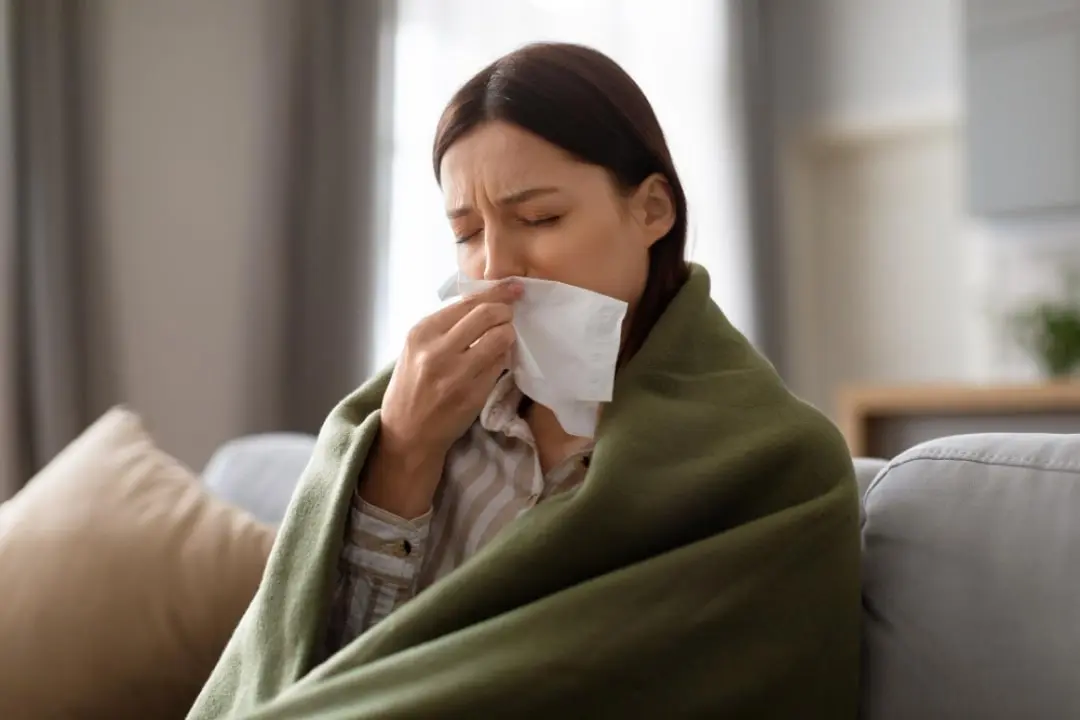
Why do my teeth hurt when I have a cold?
Colds, a common occurrence during the winter months, aren't just limited to a runny nose, sore throat, or fatigue; they can also sometimes affect your oral and dental health. Pain and tenderness, especially in the upper teeth, are directly linked to nasal congestion and swelling of the sinuses due to inflammation. This is because the maxillary sinuses are located very close to the roots of the upper teeth. Therefore, many people have difficulty distinguishing whether their toothache is due to a cold or a dental problem.
Given that adults experience several colds a year, it's important to maintain oral and dental health during this period. Nasal congestion can lead to mouth breathing, which can exacerbate dry mouth. Dry mouth, in turn, poses a risk factor for tooth decay and gum problems. Therefore, instead of relying solely on cough syrup or nasal decongestants, taking simple oral health measures can speed up your recovery.
So, what does a toothache during a cold really mean? Is it temporary sensitivity caused by sinus pressure, or does it indicate a dental problem that needs attention? The answers to these questions can be crucial in taking the right care steps.
Possible causes of toothaches due to a cold
A cold isn't just a runny nose, cough, and fatigue; it can sometimes unexpectedly cause toothaches. This is primarily due to the sinuses' proximity to the roots of the upper teeth. Nasal congestion and sinus swelling can put pressure on the teeth, causing a throbbing pain. Furthermore, the teeth may shift slightly during this process, causing a feeling of misalignment when chewing.
In this context, let's take a look at the possible causes of toothaches due to a cold:
Sinus pain and toothaches
One of the most uncomfortable symptoms experienced during a cold is a toothache. While it may seem unrelated at first, inflammation and pressure in the sinuses can cause pain in the upper back teeth. This pain, especially felt in teeth near the sinuses, is not limited to a single tooth; it manifests as a widespread, dull discomfort.
If you have recently had a cold or flu-like infection and suddenly begin to feel tenderness in your teeth, this could be a sign of acute sinusitis. Additional symptoms such as thick mucus discharge from the nose and throat, facial pressure, and a decreased sense of smell and taste are often accompanied. In most cases, this condition resolves quickly with simple measures and antibiotics. However, if symptoms persist for more than 10 days or worsen, a doctor's appointment may be necessary to rule out a bacterial infection.
Nasal congestion and dry mouth
Nasal congestion caused by the common cold makes breathing difficult, forcing the person to breathe through their mouth and indirectly affecting our oral health:
This is because blocked nasal passages force us to breathe through our mouth and cause a decrease in saliva production.
This can quickly lead to dry mouth, chapped lips and tooth sensitivity. Reduced saliva flow is not only uncomfortable; it also weakens a critical line of defence for oral health. This is because saliva plays an important role in preventing tooth decay and inhibiting the growth of bacteria.
Mouth dryness associated with nasal congestion can increase the risk of tooth decay and gum disease. It can also affect the intake of nutrients needed by the body by making chewing and swallowing difficult.
Therefore, to alleviate dry mouth during illness:
- Drink plenty of water and chew sugar-free gum to keep your body hydrated and your mouth moist.
- Using a nasal spray to reduce sinusitis,
- Keeping your home and living space humid and taking warm baths may be beneficial.
- Additionally, maintaining regular and adequate oral hygiene is crucial in preventing the proliferation of bacteria.
Bruxism
Bruxism, the habit of clenching and grinding your teeth, is a condition that often develops unnoticed and puts pressure on both the teeth and the jaw joint. Especially during periods of illness, such as a cold or the flu, this habit can worsen and intensify pain felt in the teeth, jaw, and even around the ears.
Bruxism doesn't just cause short-term dental discomfort; if left untreated, it can lead to cracking and breaking teeth. Therefore, consulting a dentist beforehand and wearing a protective mouthguard, especially if you clench your teeth at night, is an effective step to both protect your teeth and reduce the strain on your jaw muscles.
When should you see a dentist?
A toothache caused by a cold usually disappears after the illness subsides. However, if your toothache persists despite recovery, it's important not to ignore it. If the toothache is particularly severe and accompanied by additional symptoms such as swelling in the cheeks and fever, it may not be solely due to the cold.

Such symptoms could indicate a tooth abscess or a more serious dental infection, which will not heal on its own. Therefore, if you experience such a condition, it's best to see your dentist immediately. Early intervention will both quickly control the pain and prevent potential complications.
How can I prevent my teeth from hurting when I have a cold?
Gentle but regular oral care, drinking plenty of water to promote saliva flow, and relieving dryness with sugarless gum or lozenges are very beneficial during this period. Nasal decongestants, saline sprays, and staying in a humid environment can reduce sinus congestion and relieve pressure on your teeth. Plenty of rest and a balanced diet will also speed up the healing process and help maintain both your overall health and your dental health.
A cold can affect not only your overall health but also your oral and dental health. Sinus pressure and dry mouth can cause toothaches or worsen existing symptoms.
However, if your toothache persists for a long time, remember that it may not be just a cold; seek professional help from a dentist. At Simena Dental Clinic, we're here to help you maintain a healthy smile and feel your best. If you have any questions about your toothache or dental treatments in Antalya, call us today.
